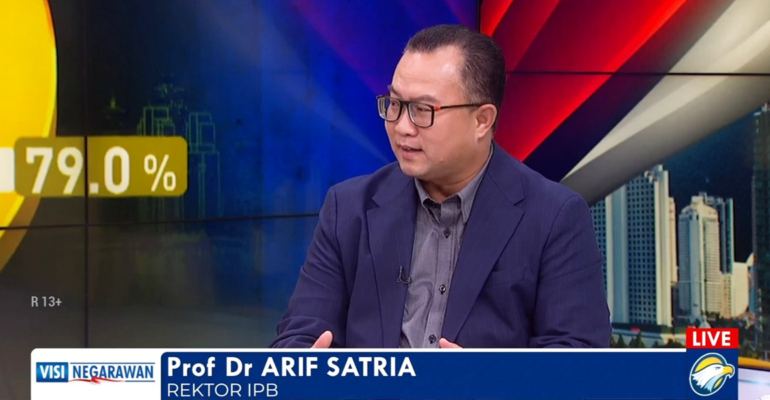IPB University Rector: Elected State Leaders Must Understand the Concept of Ecocracy

Prof Arif Satria, the Rector of IPB University, explains that future leaders in Indonesia must possess environmental leadership and comprehend the concept of ecocracy. These leaders should be capable of creating environmental governance and sustainable development. They must also synergize ecological rationality with economic rationality, especially in facing global pressures and corporate interests.
The opinion of the IPB University Rector is a response to three potential presidential candidates (Bacapres) who include environmental issues in their vision and mission. The understanding of environmental issues by Bacapres and the alignment of democratic agendas with ecological aspects still need scrutiny.
According to Prof Arif, environmental issues are complex, involving various sectors and ministries. Historically, modern development has tended to focus on economic rationality. However, there are segments of the population more concerned with ecological rationality.
Therefore, he emphasizes that ecological rationality must align with economic rationality. The concept of ecocracy would signify that environmental protection is firmly rooted in development legislation.
“The goal of this theory (ecocracy) is to synergize ecological and economic rationality. It is a perspective of ecological modernization that has been evolving over time. Sustainable development is a derivative of this concept,” he explained during a Visionary Statesman broadcast on Metro TV (10/11).
If the concept of ecocracy is realized, he continues, the transdisciplinary and sustainable approaches currently being developed will become more effective as the foundation for development policies.
Prof Arif explains that in the post-reform democracy process, out of 288 local regulations issued, 44 percent have not considered ecological aspects but are oriented towards permit fees. Policies related to environmental management and resources are still minimal.
“Corruption of natural resources is becoming a trend. Therefore, we need a ‘green’ and clean government that is fair in overseeing all strategic development processes at the central and regional levels,” says Prof Arif.
The state has a dual role as a development agent and environmental protector. Therefore, a good government must be able to find a middle ground. On the other hand, the public is genuinely concerned about the environment.
“This leader must protect the small people, and the myth that the people don’t care about the environment is wrong. The community is genuinely concerned about the environment, and local knowledge should not be ignored. That’s why IPB University is developing sustainable science that acknowledges the existence of local knowledge and wisdom,” he concludes. (MW) (IAAS/Hap)



